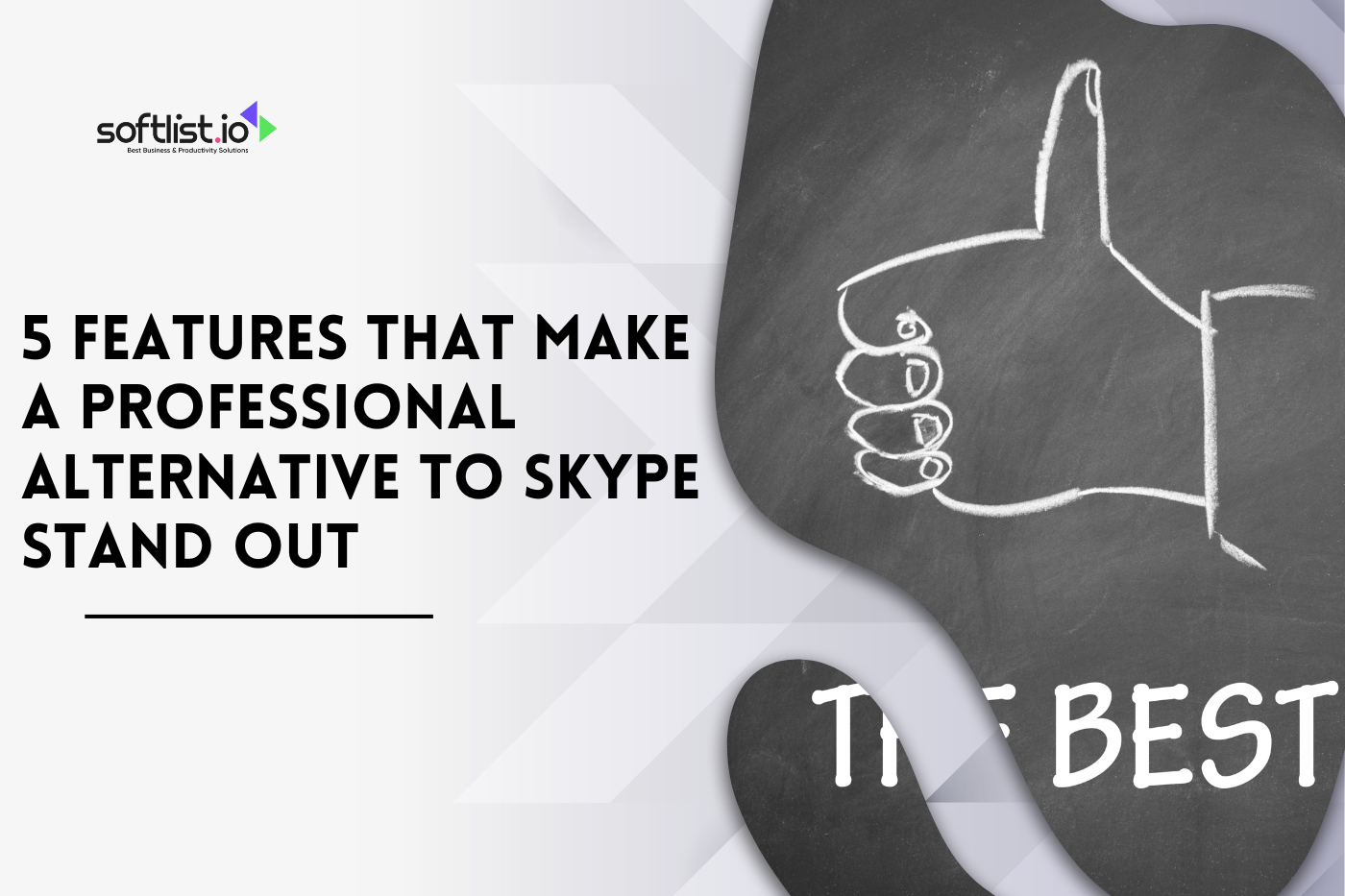Choosing the correct business phone system significantly influences productivity and customer engagement for many small firms. This article covers all the bases to help you determine this year’s finest small company phone systems.
To enhance your company’s communication overall, we will investigate various phone service options, technology, and pricing factors. Is your phone system ready for optimization?
A list of things to consider and your most excellent choices follows. We will then examine the best options for small company phone systems and how to select the one that best suits your requirements.
What Are the Different Types of Business Phone Systems?

Source: Canva Pro
Multiple business phone systems are available today, each with distinct features and advantages. Understanding these can help businesses choose the optimal solution for their specific needs.
Traditional Phone Systems: Pros and Cons
Traditional phone systems like the Public Switched Telephone Network (PSTN) rely on physical phone lines for connectivity. Their main advantage is their reliability, as they have been in use for decades.
However, their drawbacks include limited scalability, higher maintenance costs, and a lack of advanced features, which are prevalent in more modern alternatives.
VoIP Phone Systems: Features and Benefits
VoIP (Voice over Internet Protocol) phone systems have revolutionized business communications by transmitting calls over the internet. The VoIP phone system offers numerous features, such as voicemail transcription, business texting, and integrations with other business tools.
They are cost-effective, easily scalable, and provide enhanced mobility since employees can access the system from any location with an internet connection. Moreover, the best business phone services this year are increasingly leverage VoIP technology to deliver comprehensive phone service solutions.
Virtual Phone Systems: When to Use Them
Virtual phone systems are an excellent option for small businesses and startups. These systems route calls from a central business phone number to the owner’s or employees’ mobile or home phones without the need for traditional phone hardware.
This business phone system is ideal for businesses with remote or mobile workforces. The simplicity of set-up and cost-effectiveness make virtual phone systems a practical choice for many phone service providers.
How to Do Business Phone Systems Work?

Source: Canva Pro
Understanding modern phone systems‘ underlying technology and critical features is crucial for making an informed decision.
Understanding VoIP Technology
VoIP technology converts voice signals into digital data packets transmitted via an internet connection. This technology enables enhancements over traditional phone systems, such as improved call quality, reduced costs, and advanced features like video conferencing and voicemail.
A VoIP business phone can seamlessly integrate with cloud-based services, making it a versatile choice for the best small business phone system.
Key Features of Modern Phone Systems
Modern business phone systems offer various features designed to streamline business communication. These include voicemail transcription, business texting, automated attendants, and integration with customer relationship management (CRM) tools.
Such features enhance productivity and enable small businesses to provide superior customer service. Phone systems for small businesses should combine these capabilities with user-friendly interfaces for optimal functionality.
Integrating Phone Systems with Other Business Tools
Contemporary phone systems have a significant advantage over traditional phone systems regarding integration with other business tools. Cloud-based phone systems, for instance, can be integrated with CRM software, email, and collaboration tools like Zoom Phone.
This interoperability allows for a seamless workflow and consolidated communication channels, ensuring that all customer interactions are managed and monitored.
What Is the Best Small Business Phone System?

Source: Canva Pro
Determining the best small business phone system depends on evaluating various factors and aligning them with business needs.
Evaluating the Best Business Phone System for Specific Needs
Every business has unique requirements, and selecting the best business phone system involves assessing these needs. Consideration should be given to the number of phone lines required, the necessity for mobile access, and the range of features enhancing business operations.
Also, choosing a business phone provider that offers flexible, scalable solutions is crucial for long-term success.
Cost vs. Features: Finding the Balance
The cost of a business phone system can vary significantly based on the features offered. While some businesses prioritize cost-saving, others may require a rich set of features to support their operations.
It is essential to balance the two by evaluating the business’s specific needs and the potential return on investment. For instance, a small company that relies heavily on remote work might invest in a cloud-based phone system for its flexibility and mobility benefits.
Top Recommendations For This Year
Several business phone systems stand out this year due to their innovative features and reliability. VoIP systems remain popular, with business phone system providers like RingCentral and 8×8 leading the market. Virtual phone systems like Grasshopper offer excellent flexibility for startups and remote teams.
Though less favored, traditional systems remain relevant for businesses requiring tried-and-tested reliability. The best business phone system will be the one that seamlessly aligns with a specific business’s operational needs and budget.
How Much Do Small Business Phone Systems Cost?

Source: Canva Pro
Understanding the cost implications of different business phone systems is crucial for budgeting and decision-making.
Cost Breakdown of VoIP vs. Traditional Systems
VoIP and traditional phone systems have varied cost structures. VoIP systems typically incur lower costs for international calls and have fewer infrastructure requirements, thus reducing overall expenses.
Traditional systems, on the other hand, may have higher initial setup fees and ongoing maintenance costs. However, they can be more cost-efficient for businesses operating within a confined geographic area and do not require advanced features.
Cumulative Costs: Hardware, Software, and Service Fees
When evaluating the costs of small business phone systems, it is essential to consider all elements, including hardware, software, and service fees. VoIP systems may require investment in IP phones and adequate internet bandwidth, while traditional systems might necessitate the purchase of desk phones and wiring.
Furthermore, virtual phone systems often have monthly subscription fees rather than one-time hardware costs. A comprehensive cost analysis should include these cumulative expenses to provide a clear financial picture.
Budgeting for Business Phone Systems
Effective budgeting for a new phone system involves understanding both direct and indirect costs. Direct costs include equipment purchases, installation fees, and subscription plans. Indirect costs might encompass training employees and potential downtime during the transition.
Many small businesses must also account for scalability when budgeting, ensuring that the chosen system can grow with their needs without incurring prohibitive costs. Thoroughly understanding and forecasting these factors will aid in the effective allocation of financial resources.
How to Set Up a Small Business Phone System?

Source: Canva Pro
Implementing a new phone system requires careful planning and execution to ensure smooth installation and optimal performance.
Selecting the Right Equipment: Desk Phones, VoIP Phones, etc.
The type of equipment selected for a business phone system significantly impacts its functionality. VoIP phones, for example, are essential for businesses adopting a VoIP-based system.
Desk phones remain relevant for traditional systems. Additionally, peripheral devices such as headsets and routers must be considered to enhance usability and connectivity. Selecting the right mix of equipment based on the type of business phone system is pivotal for seamless operations.
Steps for Installation and Configuration
The installation and configuration of a business phone system involve several steps. Initially, businesses must assess their current infrastructure and requirements.
After acquiring the necessary equipment, the next steps include setting up the hardware, configuring the software, and ensuring the business phone service is operational. Integrating the phone system with existing business tools and training the staff are crucial steps to maximize the system’s benefits.
Maintaining and Troubleshooting Your Phone System
Ongoing maintenance and troubleshooting are vital for the longevity and reliability of a business phone system. Regular software updates, hardware checks, and network performance monitoring ensure that the system remains functional.
Having a dedicated team or a reliable business phone service provider for support can help quickly resolve any issues, minimizing disruption to business communication.
Final Thoughts
VoIP and virtual phone systems are great for modern companies because they are flexible, have advanced features, and save money. Small businesses that want to be more productive and connect with their customers must ensure they get the right business phone system.
Even though traditional systems are effective, they might not be able to handle the growth and new features needed today. It would help if you weighed costs and benefits to find the best fit for your business. The best way to get the most out of your phone system is to have it installed correctly, keep it in good shape, and connect it to other business tools.
Getting the right tools and training your staff will help things run smoothly and improve interaction. Ultimately, a good phone system can make your business run more smoothly and make customers happier.
Give your team the best tools for communicating with each other. Check out our detailed tips on choosing and setting up business phone systems to make your team more connected and productive. Start improving the way you communicate right away.
Find deals that can’t be beaten and top-rated suggestions! Our deals are too good to pass up and will save your business money. Check out our Top 10 list for more business ideas. With our carefully chosen guides, you can get the most for your money and find the best goods.
FAQs: Business Phone Systems
What is the Best Phone System for a Small Business?
The best phone system for a small business is often a VoIP phone system due to its flexibility and cost-efficiency. Top business phone systems like RingCentral and Nextiva offer robust features that small business owners appreciate. These systems give small businesses the capability to manage multiple lines and extensions seamlessly.
What is a Business Phone System?
A business phone system is a network of office phones that handles inbound and outbound calls for a business. These systems can range from traditional PBX systems to advanced VoIP solutions. They are essential for efficient communication within and outside the company.
What are the Different Types of Phone Systems?
Phone systems can be divided into three main types: traditional PBX systems, VoIP phone systems, and cloud phone systems. Traditional PBX systems use physical hardware and phone lines, while VoIP systems transmit calls via the Internet. Cloud phone systems are VoIP hosted offsite by a phone system provider.
What is the Best Phone Service for Small Business?
VoIP providers are often the best phone service for small businesses due to their lower costs and advanced features. VoIP service providers like Vonage and Ooma Office offer scalable phone solutions that can grow with your company. These services are ideal for small business owners who want to maintain separate business and personal phone numbers.
Which Mobile is Best for Business Purposes?
The best mobile phone for business purposes offers robust security, reliable performance, and good battery life. Popular choices include the iPhone 13 Pro and the Samsung Galaxy S21, which provide excellent business features. These phones are suitable for managing business lines and accessing business apps.





